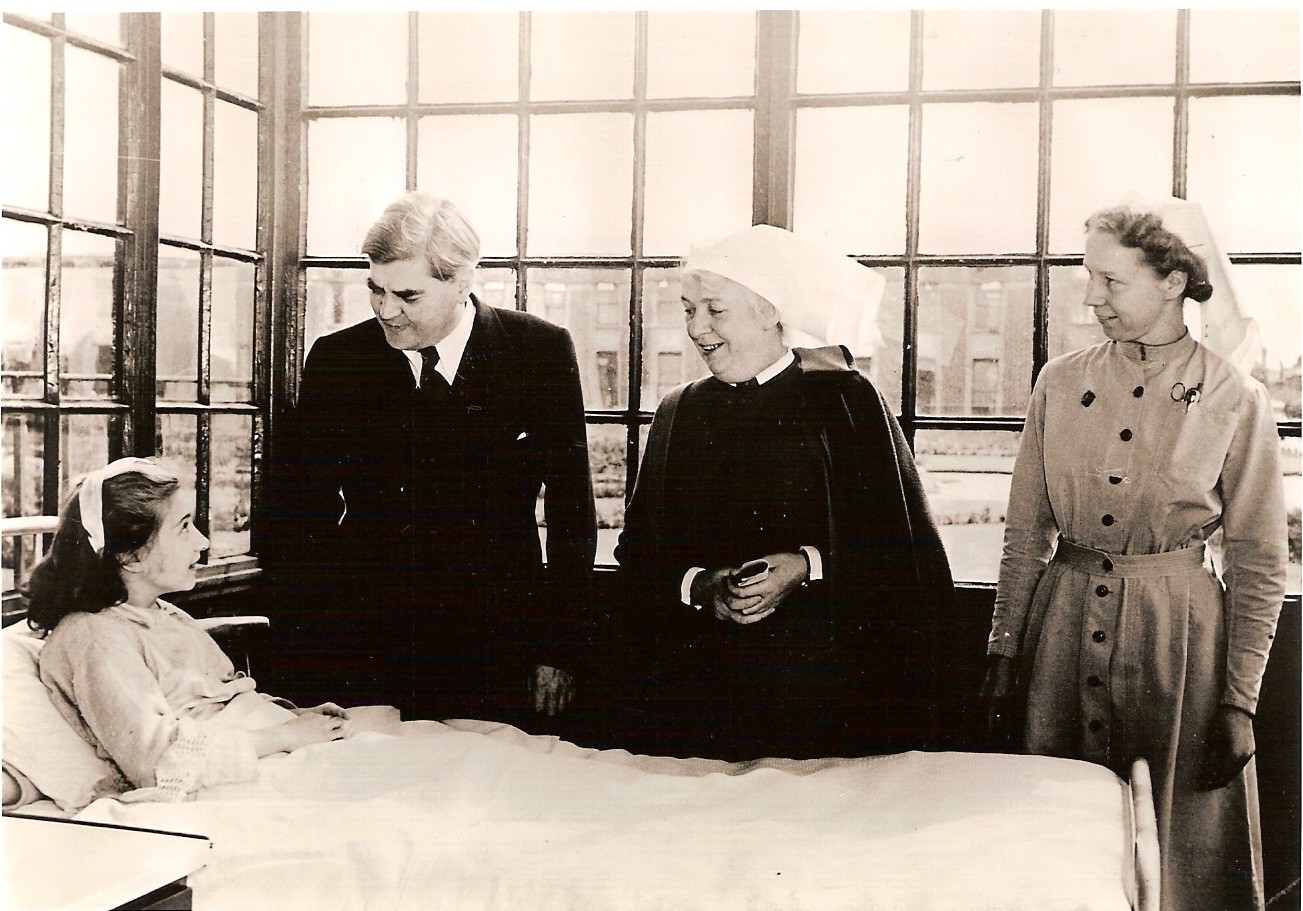University of Manchester and British Library launch unique record of NHS
A unique historical record of the NHS captured by University of Manchester historians is to be archived for the nation at the British Library. Voices of Our National Health Service covers the entire period of the NHS from its launch in 1948, through to the Covid-19 pandemic.
Patients and staff who appear in the collection were interviewed by volunteers in the five year study coordinated by historian Professor Stephanie Snow.
Since 2017, the ‘NHS at 70’ team at the University of Manchester has recorded over 2,000 audio interviews with 1,300 people across the UK about the history of the NHS and its place in everyday life and work, supported by The National Lottery Heritage Fund.
A £1m grant from UK Research and Innovation through the Arts and Humanities Research Council in July 2020 enabled the researcher team to link up with the British Library’s oral history department to form this permanent public resource which will also inform policy and practice.
The interviews are being preserved for posterity at the British Library and the Library will make the full collection available online in early 2023.
Voices of Our National Health Service sits within the British Library’s wider Covid-19 collecting initiative which includes other streams of Covid-related content spanning broadcasting, websites, video, and written accounts.
Unique accounts from Voices of Our National Health Service are highlighted in a web resource ‘Covid Stories’: to which content will be added in the coming months.
The project has involved more than 160 volunteers across the UK and is supported by a diverse group of stakeholders including the NHS, the TUC, Age UK, the Stroke Association and many other health, community and heritage organisations
Other participants in the project include patients, policymakers, frontline NHS staff, young people and individuals with high-risk conditions.
Historian Professor Stephanie Snow from the University’s Centre for the History of Science, Technology, and Medicine is the project’s principal researcher.
She said: “Until this project, there was no detailed historical record of the people who depend on the NHS, and those who work in it.
“The focus of historians of the NHS was always on policy and politics but the incredible range of voices from across different communities who were affected by the NHS were not captured.
“That is why Voices of Our National Health Service is an invaluable record for anyone - from patients to policy makers to historians – who is trying to understand and learn about the unique place of the NHS in our everyday lives from routine treatments to caring for people with new diseases such as HIV and Covid.”
Interviews were conducted face to face until March 2020 when Covid-19 began to impact on lives and communities and the team, including volunteer interviewers, switched to telephone interviews.
She added: “Covid has produced seismic shifts across lives and communities and its social significance in terms of a public health crisis was unprecedented in living memory.
“It was a watershed moment in the longer history of the NHS which prompts the question how have public attitudes to the NHS changed, what does care mean and who should provide it?
“These are some of the vital questions that the personal testimonies captured in this collection respond to.”
The focus of historians of the NHS was always on policy and politics but the incredible range of voices from across different communities who were affected by the NHS were not captured.. That is why Voices of Our National Health Service is an invaluable record for anyone - from patients to policy makers to historians – who is trying to understand and learn about the unique place of the NHS in our everyday lives from routine treatments to caring for people with new diseases such as HIV and Covid
Mary Stewart, Lead Curator of Oral History at the British Library said: “We are delighted to have worked with the team at the University of Manchester to archive Voices of Our National Health Service. These important and moving personal accounts add to our rich collections on the National Health Service, and the interviews conducted throughout the pandemic document a major moment in British history.”
Included in the collection are:
- Dame Elizabeth Nneka Anionwu, a British nurse, health care administrator, lecturer, and Emeritus Professor of Nursing at . An advocate for equality and diversity, in 1979, she became the United Kingdom's first sickle-cell and thalassemia nurse specialist, helping establish the Brent Sickle Cell and Thalassaemia Counselling centre
- Mary Good who was interviewed in 2019 aged 106 – the collection’s oldest contributor. Born before women got the vote, the former nurse remembers her father working as a GP before the NHS was launched. Mary has recently died.
- Norman Sharp, who had the first hip replacement on the NHS in November 1948. Norman died in August 2021
- Perpetual Uke, is a Rheumatology Consultant at Birmingham City Hospital. Her premature twins were delivered by caesarean while she was in a coma with Covid.
Clips from these interviews are available for reuse and accessible at:
Louise Sutherland, Head of Engagement, England, North at The National Lottery Heritage Fund, said: “We are really proud that The National Lottery Heritage Fund has been able to support the Voices of Our National Health Service project to ensure these heartfelt and inspiring stories - from the creation of our enviable health service through to pivotal moments in our contemporary history such as the Covid-19 pandemic – have been captured and safeguarded for future generations. The heritage of the UK is always evolving, and it’s fantastic to see how this wonderful project has grown and progressed to showcase the important stories of the NHS that will define our history.
“A huge congratulations to the project team and also the hundreds of volunteers for all their hard work, in creating such a fascinating and important collection from across the UK.”
